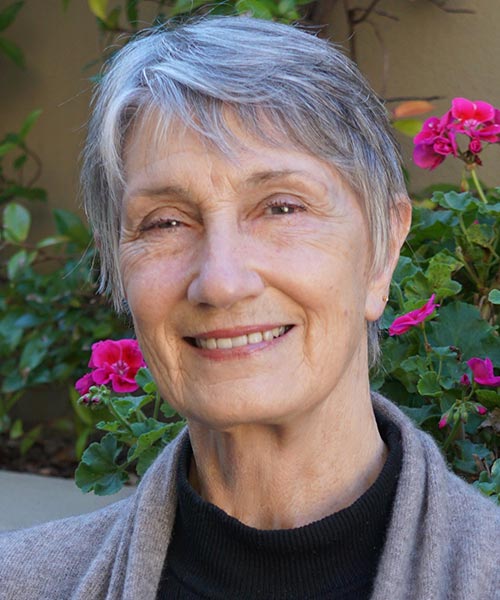
Gynaecology & Female Health: Clinical Insights - Course 3
by Robin Marchment
Essential information on the features, diagnostic criteria, mechanisms, endocrine picture, and implications for health and fertility in women with PCOS. Robin discusses Chinese medicine approaches, clinical trials, and shares her clinical experience.
Gynaecology & Female Health: Clinical Insights - Course 3
Course Overview
- Polycystic ovary syndrome (PCOS) is a complex condition that can have a disputed diagnosis. This course presents essential and detailed information for the dedicated practitioner to ensure they are knowledgeable in the field of women’s health, where 6-9% of women are diagnosed with PCOS.- This course covers the clinical features, diagnostic criteria, mechanisms, endocrine anomalies and the broader implications for health and fertility in women with PCOS.
- The facts and ramifications of insulin resistance are explained, as well as the connection between PCOS and epilepsy.
- The Chinese medicine approach is explained and case studies are discussed, with particular reference to formula modification.
- Clinical trials, their design and findings are presented and discussed.
Course Objectives
- Know the clinical features and diagnostic criteria of PCOS, the variations in presentation and the reasons for disputed diagnosis. Be aware of diagnostic tests, their findings, the endocrine anomalies and their implication for health.
- Understand the possible aetiologies, the mechanisms and the role of insulin in PCOS.
- Understand the implications of PCOS for fertility and for general health, the link between PCOS and epilepsy, diabetes, obesity, insulin resistance, cancer, unhealthy lipid/cholesterol profile, hypertension, and myocardial infarction.
- Comprehend the various aspects of the Chinese medicine approach in diagnosis and treatment, the underlying patterns, the need for an individualised approach, and the benefit of accommodating bioscientific knowledge to refine the treatment.
- Be able to evaluate different clinical approaches in genuine clinical cases, identify the rationale of the approaches in respect of the presentation, and the reason for herb selection. Be able to evaluate clinical trials and their outcomes.
Course Outline
0 hrs - 30 minClinical features and diagnostic criteria of PCOS; Variations in presentation; Reasons for disputed diagnosis; Diagnostic tests; Diagnostic findings; Endocrine anomalies; Implication for health.
30 min - 45 minUnderstand the possible aetiologies, the mechanisms and the role of insulin in PCOS.
45 min - 1 hrsThe implications of PCOS in fertility and general health; The link between PCOS and epilepsy, diabetes, obesity, insulin resistance, cancer, unhealthy lipid/cholesterol profile, hypertension, and myocardial infarction.
1 hrs - 1.25 hrsVarious aspects of the Chinese medicine approach in diagnosis and treatment; Underlying patterns, the need for an individualised approach, and the benefit of accommodating bioscientific knowledge to refine the treatment.
1.25 hrs - 1.75 hrsExamination and evaluation of clinical cases; Identification of the rationale of various approaches in respect of the presentation; Reason for herb selection; Evaluation of clinical trials and their outcomes, findings and conclusions.
Teacher

More...
Gynaecology & Female Health: Clinical Insights - Course 3
PCOS in Chinese Medicine: Treatment approaches and clinical trials
by Robin MarchmentGynaecology & Female Health: Clinical Insights - Course 3
Course Overview
- Polycystic ovary syndrome (PCOS) is a complex condition that can have a disputed diagnosis. This course presents essential and detailed information for the dedicated practitioner to ensure they are knowledgeable in the field of women’s health, where 6-9% of women are diagnosed with PCOS.- This course covers the clinical features, diagnostic criteria, mechanisms, endocrine anomalies and the broader implications for health and fertility in women with PCOS.
- The facts and ramifications of insulin resistance are explained, as well as the connection between PCOS and epilepsy.
- The Chinese medicine approach is explained and case studies are discussed, with particular reference to formula modification.
- Clinical trials, their design and findings are presented and discussed.
Course Objectives
- Know the clinical features and diagnostic criteria of PCOS, the variations in presentation and the reasons for disputed diagnosis. Be aware of diagnostic tests, their findings, the endocrine anomalies and their implication for health.
- Understand the possible aetiologies, the mechanisms and the role of insulin in PCOS.
- Understand the implications of PCOS for fertility and for general health, the link between PCOS and epilepsy, diabetes, obesity, insulin resistance, cancer, unhealthy lipid/cholesterol profile, hypertension, and myocardial infarction.
- Comprehend the various aspects of the Chinese medicine approach in diagnosis and treatment, the underlying patterns, the need for an individualised approach, and the benefit of accommodating bioscientific knowledge to refine the treatment.
- Be able to evaluate different clinical approaches in genuine clinical cases, identify the rationale of the approaches in respect of the presentation, and the reason for herb selection. Be able to evaluate clinical trials and their outcomes.
Course Outline
0 hrs - 30 minClinical features and diagnostic criteria of PCOS; Variations in presentation; Reasons for disputed diagnosis; Diagnostic tests; Diagnostic findings; Endocrine anomalies; Implication for health.
30 min - 45 minUnderstand the possible aetiologies, the mechanisms and the role of insulin in PCOS.
45 min - 1 hrsThe implications of PCOS in fertility and general health; The link between PCOS and epilepsy, diabetes, obesity, insulin resistance, cancer, unhealthy lipid/cholesterol profile, hypertension, and myocardial infarction.
1 hrs - 1.25 hrsVarious aspects of the Chinese medicine approach in diagnosis and treatment; Underlying patterns, the need for an individualised approach, and the benefit of accommodating bioscientific knowledge to refine the treatment.
1.25 hrs - 1.75 hrsExamination and evaluation of clinical cases; Identification of the rationale of various approaches in respect of the presentation; Reason for herb selection; Evaluation of clinical trials and their outcomes, findings and conclusions.
Teacher

More...
 English
English
 Français
Français
 Italiano
Italiano
 Español
Español
 Deutsch
Deutsch

 Fast delivery
Fast delivery